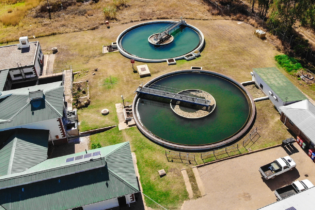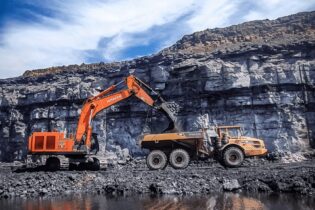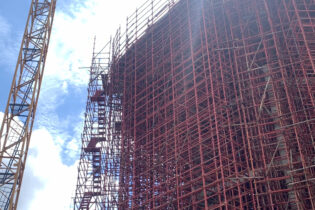Veolia Water Solutions & Technologies South Africa (Veolia) was recently contracted by a global engineering, procurement and construction management company to design, fabricate and supply a brackish water treatment plant for the second phase of a mine in Mauritania, Northwest Africa. In terms of the contract, 62.5 cubic metres per hour of reverse osmosis (RO) permeate will be supplied to the process plant.
“This project posed a few challenges that required innovative solutions. Its remote location in a very harsh desert environment brings climatic challenges. The client also had high level specifications, such as all motor-driven equipment being rated for high and premium energy efficiency,” explains André Loots, project engineer, Veolia. To fulfil this requirement, the company included optimum energy efficiency in the design for the motor-driven equipment. As part of its continuous drive to add more value for its customers, Veolia provided all documentation in English and French. A French process engineer was co-opted to be part of the team in terms of Veolia’s international exchange programme to provide assistance with this aspect of the contract.
The treatment process starts with the feed of raw water from boreholes on-site. This water is pumped to the multimedia filters with feed pumps to undergo pre-filtration. Then the water is pumped into a filtered water tank, before being sent through a set of plate heat exchangers. This step is necessary due to the high ambient temperatures of the area, which can see the water reaching temperatures as high as 50°C. Before reverse osmosis (RO) treatment can commence, the water temperature needs to be brought down to a maximum of 30°C. This temperature reduction is achieved through a cooling system, consisting of two air-cooled chiller systems, each with a plate heat exchanger at the process interface.
As part of its continuous drive to add more value for its customers, Veolia provided all documentation in English and French. A French process engineer was co-opted to be part of the team in terms of Veolia’s international exchange programme to provide assistance with this aspect of the contract.
The treatment process starts with the feed of raw water from boreholes on-site. This water is pumped to the multimedia filters with feed pumps to undergo pre-filtration. Then the water is pumped into a filtered water tank, before being sent through a set of plate heat exchangers. This step is necessary due to the high ambient temperatures of the area, which can see the water reaching temperatures as high as 50°C. Before reverse osmosis (RO) treatment can commence, the water temperature needs to be brought down to a maximum of 30°C. This temperature reduction is achieved through a cooling system, consisting of two air-cooled chiller systems, each with a plate heat exchanger at the process interface.After the water has been cooled down sufficiently, it is treated in the duplex RO system. From there, the desalinated water is pumped to two desalinated water storage tanks outside the building, ready for distribution to the plant as process water for industrial usage.
Veolia supplied, among other equipment, 22 skid-mounted pumps, ranging from vertical centrifugal and centrifugal end suction pumps, to high pressure sleeved pumps. The plant is also equipped with an air compressor set to provide instrument air for the automation of equipment. The two chillers, each with a plate heat exchanger, were purposely sourced from a supplier, who is experienced in dealing with high ambient temperatures and similar harsh operating conditions. Other equipment that was supplied includes five chemical dosing stations, a 100 cubic metre filtered water tank, and three large multimedia filters. For ease of transportation and installation, the pump sets, heat exchangers, dosing stations and air compressors are all provided in pre-fabricated skid frames. The plant is due for commissioning towards the start of 2013. Veolia has offered assistance in the form of supervision during the installation and commissioning phases to ensure that they are carried out according to specified procedure. In addition, Veolia has assumed responsibility to ensure that operators receive the necessary training.





